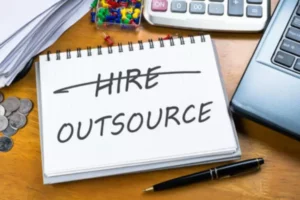Owning a rental property is a business and to turn a profit, you will need to operate it as a business.
Basic Accounting Concepts
Property managers are generally not accountants and good at managing the property and not so great at accounting for those properties. Thus, we would like to clear some basic concepts that you need to know to effectively take care of property management accounting.
- Bookkeeping – an act of systematically recording the financial transactions affecting a business.
- Account – a detailed record of all changes that have occurred in a particular account. Accounts have a debit and credit side and are grouped into five broad categories: Assets, Liabilities, Equity, Revenues, Expenses.
- Debit – an increase in an Asset or Expense account or a decrease in a Liability or Equity account.
- Credit – an increase in a Liability or Equity account or a decrease in an Asset or Expense account
- Account balance – either a debit balance or a credit balance, no “negative” balances in accounting. Balances are calculated by totaling the debit side and totaling the credit side, then subtracting the smaller side from the larger side – the balance goes on the larger side.
- Transaction – any cash or credit dealing between two parties or other events having an economic impact on a business.
- Journal entry – a formal record that documents a transaction under respective accounts.
- Accounts payable – money you owe.
- Accounts receivable – money owed to you.
- Expense – any cost incurred by the business.
- Depreciation – accounts for the loss of value in an asset over time and allows to reduce taxable income.

Bookkeeping System
The first thing you would want to do is set up a Chart of Accounts, which are your categories of income and expenses. In the days before the computer, the Chart of Accounts was called General Ledger. It was simply a notebook where each page in the book was a separate record of a different thing that the company had to account for.
For example, page 1 was Video Rent Income and page 5 was Repair Expense. Every time you rented a video, you would write it down on page 1, and every time you paid for repairs, you would write it down on page 5. This way, you could get a total video rent income you earned and get a total of page 5 and know the total repair expense you had.
Your next step is to learn the rules of a double-entry bookkeeping system, which is used by most companies and provides a more accurate and reliable financial position. It is a system in which you enter both sides of a transaction – a value is received and value is yielded or parted with. Both effects, which are equal in amount, must be entered completely in the bookkeeping records. Most bookkeeping software follow the double-entry accounting rules.

Property Management Accounting Best Practices
- Know related laws
Your accounting should also be in line with local and state laws. If you would like to get familiar with your state Property and Real Estate Laws or Tax Law, you can visit www.FindLaw.com, which makes it very easy to get more information about a specific legal topic. You can also find a lawyer who can guide you in the right direction and ensure that you are not breaking any laws.
- Automate as much as possible
When it comes to accounting, you want to automate as much as possible. This not only saves you your valuable time but also minimizes human errors and makes it easy for you to maintain proper records. You can either outsource your accounting or use a software (accounting or property management with accounting features).
- Separate bank accounts
To automate your accounting, you need to have a separate bank account/s. This also ensures that you limit your personal liability and makes accounting simpler in general. You should have a separate trust bank account to escrow security deposits. It is also recommended to have separate accounts for your clients and for operating your own property management business, so you can get business financial reports and know what your business expenses/income are and what your clients’ are.
- Consulting with tax professionals
You also need to consult with tax professionals to ensure that you are correctly handling and paying taxes on your business. They can also ensure that you are recording, for example, your capital expenditures correctly because it takes a little bit of tax knowledge to book these correctly. For instance, if you spend $2,600 on a roof repair, that would be booked as a balance sheet item, not a current expense. If you spend $2,400 on that same roof repair, that could be booked as an expense, not as a balance sheet item.

















